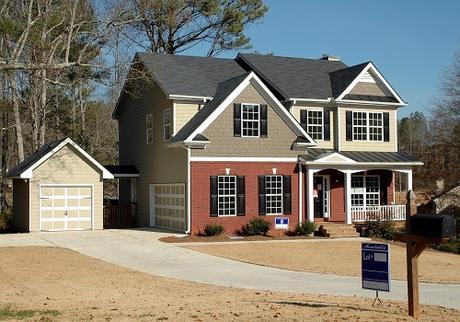Buying your first house is a big deal. All sorts of events can prompt someone to buy their first home. Anything from getting a great new job, receiving a large inheritance, or even winning a major medical malpractice lawsuit can give someone the financial confidence to go forward on this life-changing decision.
However, just because you’ve got the means doesn’t give you license to be reckless when it comes to purchasing your first home. A responsible homebuyer goes into every possible home with a plan. Here’s how to craft your plan so that you can land your dream home without a hitch.
New Construction vs Resale
The first question that confronts any homebuyer is whether or not they should go with an older home that’s already been lived in or head off the beaten path and create a new home from scratch. There is no clear-cut answer to this dilemma. Everyone has to weigh their options and consider what’s right for their specific situation, but there are some guidelines to live by.

First among these is location. If you want to be in the heart of the city or in an area that’s already very well-developed, you’re probably going to have the best luck with a resale. This is because the bulk of development usually follows population growth in an area. So convenient shopping malls, grocery stores, and exciting restaurants don’t start to appear in an area until after there’s a sufficiently large population to provide a strong customer base for those places. For this reason, new construction is typically going to happen in areas that are initially less convenient. However, if you’re in no rush, you may find your patience rewarded with brand new, excessively modern commercial construction nearby.
Many homebuyers may think that new construction requires a lot more work, but that’s not always the case. Many older homes can have hidden problems that require a lot of effort on your part to fix. Worst of all, fixing those problems will likely have to happen while you’re trying to live in that home. With new construction and a reliable construction management company you can be assured that the house you move into will be ready to go out of the box. Even little things like keeping up with ADA handrail requirements can cost you big if not done properly.
All of this isn’t to say that a resale is a bad idea, but if you do go that route do your best to ensure that the home is in good condition before you sign off on it.
Realtor vs No Realtor
This is another big dilemma. Do I get a realtor to help me find my perfect home or go it alone? Many first time homebuyers may be surprised to learn that realtors are not actually expensive to hire. In fact, a good realtor costs nothing. If a realtor comes to you asking to be paid, turn them away immediately!
This is because it is sellers who end up paying the realtor, usually on commission from the sale of the home. This arrangement incentivizes realtors to do their best when it comes to selling the homes under their care and encourages buyers to seek professional help with their decision at zero risk. So if you’re a first time homebuyer, the answer to this question is yes, you should always talk to a realtor!
Responsible Budgeting
This is an uncomfortable topic for many homebuyers, but it’s still very important and how much you choose to spend on a new home affects everything down the road. The key to budgeting for your first home isn’t to look around and see what you can afford to purchase right this instant. Even if you just came into a large sum of money like we discussed above, you still shouldn’t drop it all on a house immediately.
You shouldn’t do this because home loans, or mortgages, have notoriously low interest rates. In many cases it would be better to put that large sum of money into a mutual fund and take out a loan to pay for your house. How large a mortgage you should take out depends on your current income. Try to think of your mortgage as your new rent, but instead of paying it to the landlord you pay it to the bank. Experts generally agree that your total monthly spending on housing, including mortgage payments, utilities, and other costs, should not come out to more than 30% of your monthly income. Keep this in mind when you buy.
Shopping for your first house can be a stressful experience, but with a solid plan you can come out of this experience with your dream home in hand.
